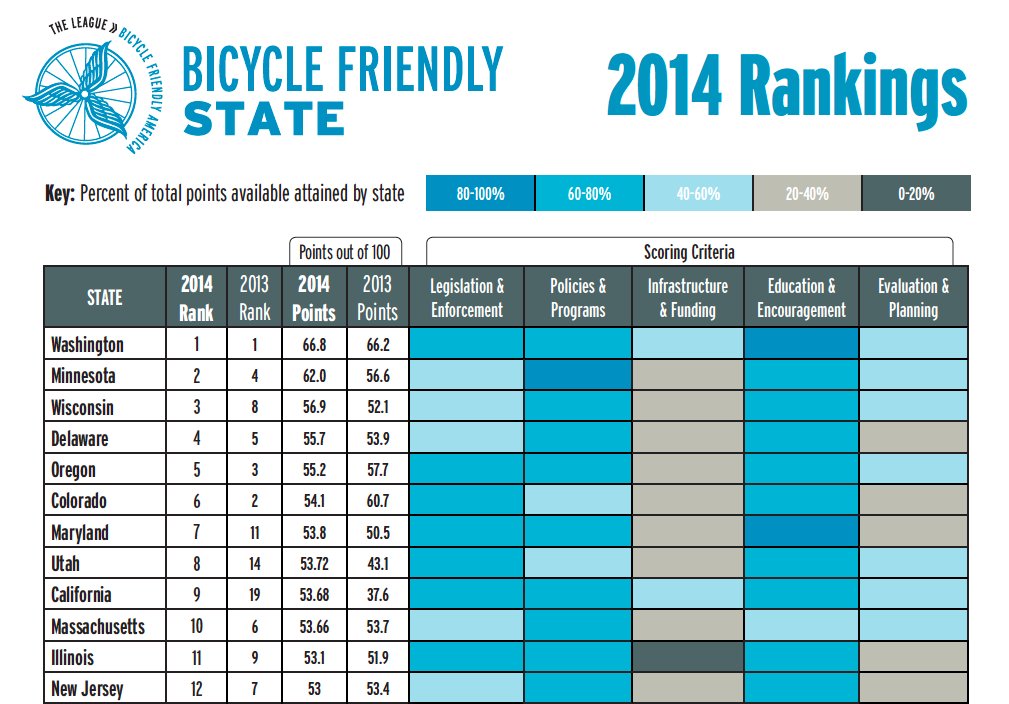DISCOVER YOUR LOCAL BICYCLING COMMUNITY
Find local advocacy groups, bike shops, instructors, clubs, classes and more!
What Does My State Ranking Mean?
Yes, there are lots of great places to ride in Washington State and it is indeed the most Bicycle Friendly State for the sixth straight year. At the same time, every state has great places to ride and I certainly wouldn’t discourage you from riding in Montana or Alabama, which ended up at the bottom of the rankings this year.
 So what do the League’s rankings really mean? We gather a lot of data for this project across a wide variety of areas -– and there is no one thing that guarantees a high or low score. We ask about everything from spending on bike infrastructure to bike parking at State Parks to legislation and policy aimed at encouraging mountain biking. We want to see if there are plans and policies in place that will ensure opportunities to increase bicycling are taken; we ask about crash records and how the police address bike safety; we want to know about signature events, rides and promotions that may literally put biking on the map.
So what do the League’s rankings really mean? We gather a lot of data for this project across a wide variety of areas -– and there is no one thing that guarantees a high or low score. We ask about everything from spending on bike infrastructure to bike parking at State Parks to legislation and policy aimed at encouraging mountain biking. We want to see if there are plans and policies in place that will ensure opportunities to increase bicycling are taken; we ask about crash records and how the police address bike safety; we want to know about signature events, rides and promotions that may literally put biking on the map.
This isn’t a grading of the state Department of Transportation, the bike coordinator in your state, or the statewide advocacy group -– it’s about everything going on in the state. But hopefully the ranking and feedback will give all those people a sense of what can be done to improve the situation in their state –- because apart from the scoring, that’s really the objective. We want to see more and safer bicycling and we want to help states make that happen.
Overall, we think many of the greatest challenges, as well as opportunities, for bicycling lie at the state level. Mayors increasingly get bicycling — governors (with a few notable exceptions like Jack Markell in Delaware) really don’t. State DOTs are still very conservative and most have yet to fully embrace the idea that bicycling (and walking) are part of their responsibility –- and that’s why even the best states score only in the 50s and 60s out of 100.
Each year, we think we are learning more about how to use the program more effectively –- we’re getting better at asking the right questions in a meaningful way, we’re doing a better job of presenting the results and outcomes, and we’re trying to be a lot more transparent in the way we do all of these things.